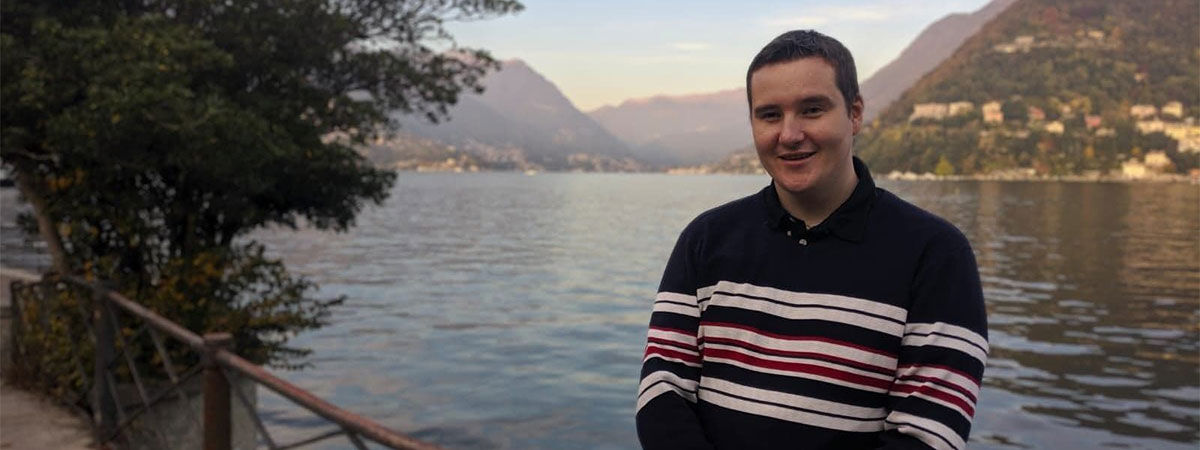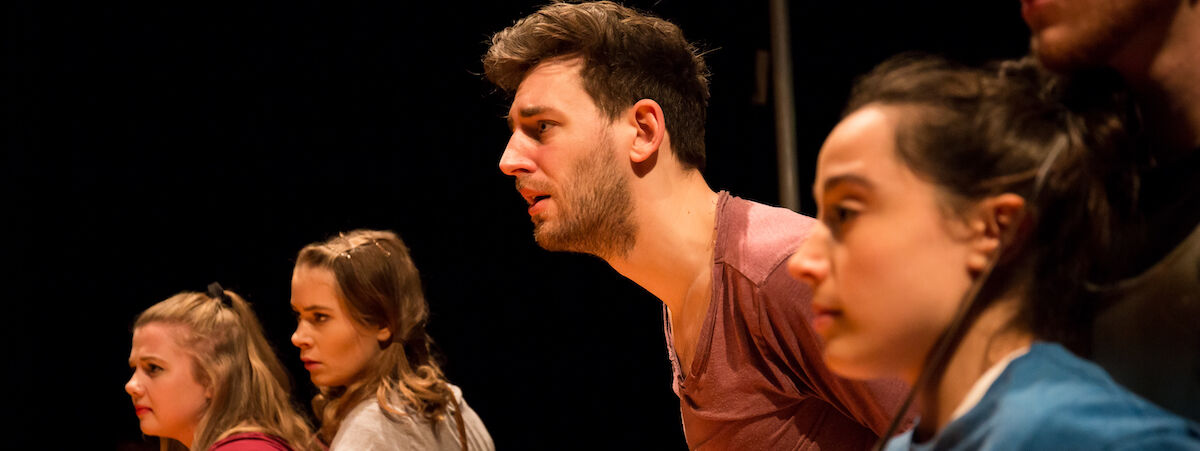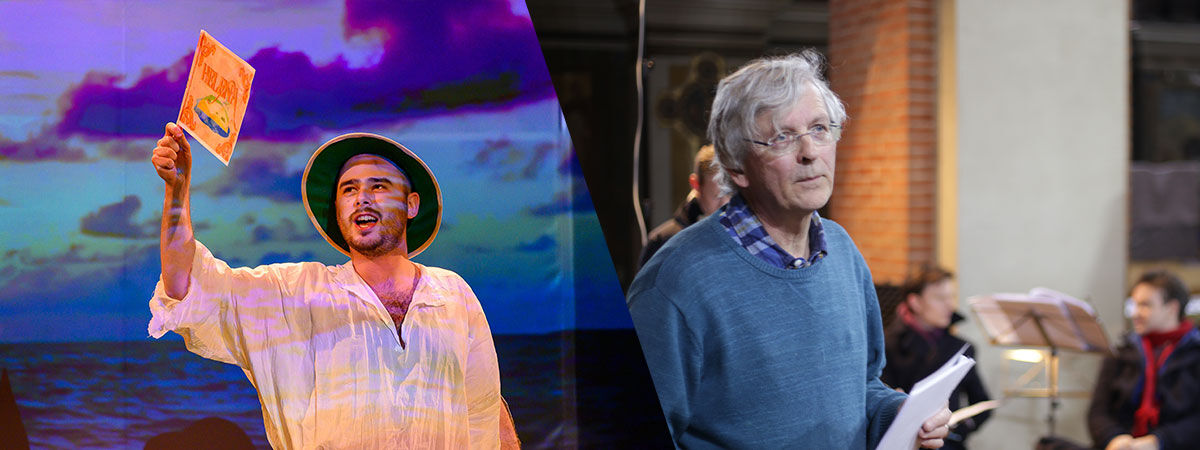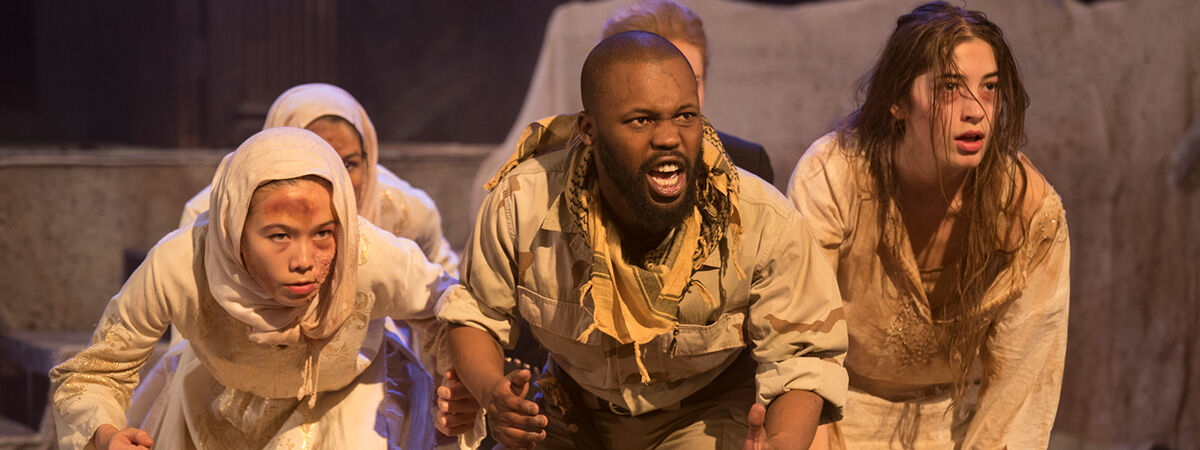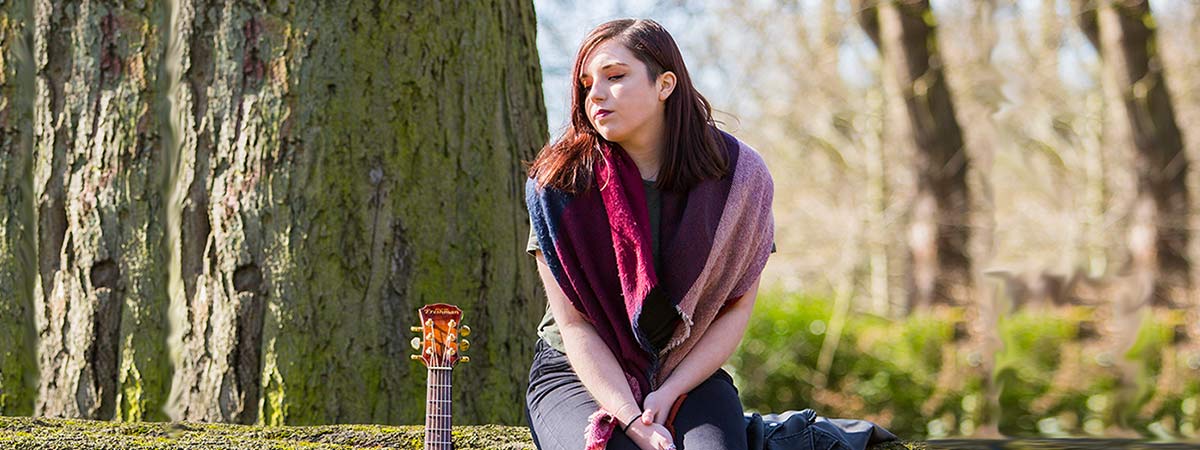Welcome to the second instalment of Passing The Baton – in which members of the RBC community interview each other.
Each week, a member of RBC staff or a student will interview a colleague to gain some insight into how the Coronavirus crisis has affected their life, both professionally and personally. The interviewer will then “pass the baton” to the interviewee who will go on to present their questions to the next person along, until finally closing the loop with an interview with our first interrogator.
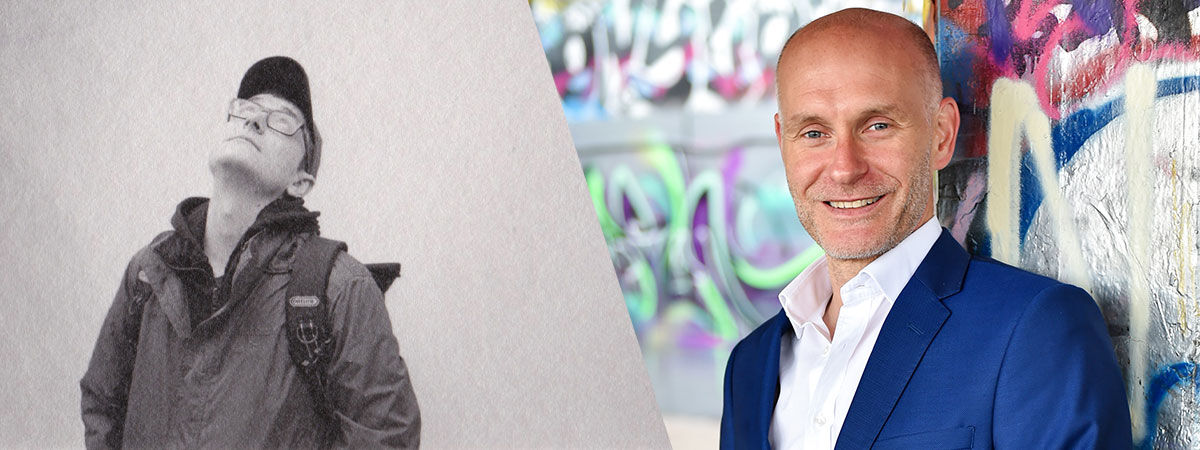
This week, RBC Head of Guitar Mark Ashford asks Composition Tutor Andy Ingamells how he’s been occupying himself during quarantine.
Mark Ashford (MA)
Your compositional style is obviously very creative so how have you been able to carry that through within the confines of your own home?
Andy Ingamells (AI)
It’s been really challenging to continue with my creative work. My work always involves other people and isn’t really something that can be done alone. Live performances are important for my compositional process, and my pieces often go through three or more live iterations before they reach their finished form. So the inability to perform live has had a big impact on my work. My compositions always include lots of theatrical elements that go beyond the purely sonic, so I’ve been using this time to work on illustrations that I use in my scores to illustrate these non-sonic elements.
I have also been maintaining my collaborative partnership with my colleague Seán Clancy. When the lockdown happened we were in the middle of a tour of the UK and Ireland with our duo performance about the ancient Irish sport of hurling called This Is About. The piece was due to be performed in Birmingham in April as part of the PRS Foundation’s Beyond Borders scheme. We were disappointed to interrupt the tour but are looking forward to picking it back up again once the lockdown has been lifted.
Seán and I have been continuing to collaborate through conversations online, and are developing a new work called Baldessari’s Trumpet to be performed in the new academic year. This will involve painting the floor of The Lab live as part of the performance.
One of my students on the new MMus Experimental Performance course James McIlwrath has been very busy during the lockdown, performing live improvised duets with different people every evening at 7pm on Instagram (@jauntyjames). I performed with him a few weeks ago and used the opportunity to try out some new compositional ideas I’ve been working with where I improvise melodies to song lyrics printed in novels.
MA
How was the transition from being a student to becoming a tutor at RBC?
AI
I started teaching whilst I was studying for a PhD at the Conservatoire, and much of my teaching is informed by my practice-based composition and performance research.
The first module I taught (and which I continue to teach) was BMus2 Performance Traditions, informally known as ‘improvising and devising’. It’s like a practical history course of 20th Century music. Each week I talk about one aspect of historical avant-garde or experimental music, then the students get into groups of four and devise one-minute pieces based on the subject. Then we all listen to the pieces as a class and discuss them. It’s a bit of a baptism of fire for the students because a lot of the music is unfamiliar and often unusual. It was also a baptism of fire for me because I hadn’t done any teaching before and suddenly found myself trying to make a convincing case for all of this exciting music in front of a class of sceptical students. It was tough at first, but I hope that my passion for the subject enables the students to develop an open-minded and enquiring attitude to unfamiliar music. I also teach more traditional music history lectures and one-on-one composition lessons.
In 2019 my colleagues Michael Wolters, Paul Norman and I designed and launched the new MMus Experimental Performance course. The course is the first of its kind in the UK, offering students the chance to make creative musical work free from traditional constraints, through collaboration with practitioners from dance, theatre and visual art. It’s been a truly exciting first year, with our first cohort of students having already produced some fascinating performances! One of the students won first prize at the Nonclassical Battle of the Bands back in January, and they’ve all responded creatively to the lockdown situation. Our home is The Lab in the Conservatoire, and we’re looking forward to getting back in there to create new interdisciplinary work once the restrictions have been lifted.
MA
What do you miss most from life before lockdown?
AI
I miss being around people. I’m lucky that I live with my fiancée and have been really enjoying taking lots of time to make food together and relax. But I miss big get-togethers with friends. I also miss live music very much, not just big concerts but little gigs in intimate spaces where people are crammed together. It seems obvious to say that music is a social activity, but it’s really not the same listening to recordings. I love assembling with others to listen to music together.
MA
What’s the first thing you will do when things return to ‘normal’?
AI
Probably all the things in the previous answer: Eat food with friends and go to hear live music. Although I also hope that things don’t really return to ‘normal’, how they were before. I hope that there are some changes in the way we organise ourselves as a society. I hope that there’s less pressure to work too much, and more encouragement for people to work in flexible ways. I hope that some of the kindness we’ve seen from people doesn’t disappear once all this is over.
MA
If we can look at this period in a positive light what do you think we can learn from it?
AI
I hope that this crisis will lead to much more generosity, sharing and collaboration in the workplace. I think people have realised that it’s important to be able to work flexibly, and so hopefully we can use this to reduce stress in our lives.
MA
Is there a particular thing that you look forward to doing each day at the moment?
AI
I’ve been going out running every morning, along the same road, and I really enjoy seeing the same landscape every day in different light and different weather. In normal life I would often travel for work, so seeing the same thing every morning is very unusual for me.
MA
Have you fulfilled any ‘bucket list’ tasks whilst we’ve been in lockdown?
AI
Haha!!! No.
MA
Have you watched/read/listened to anything inspirational recently?
AI
I read The Third Policeman by Flann O’Brien (Brian O’Nolan) which I enjoyed very much. This was recommended to me by the composer Andrew Hamilton, whose CD Music for People is very inspirational and which I highly recommend. In my role as label manager for the Conservatoire-based Birmingham Record Company I’ve also been preparing our new release called Up, Down, Top, Bottom, Strange, Charm by Cobalt Duo which came out on 24 April. It’s a fantastic album that features Conservatoire tutor Fumiko Miyachi as pianist and composer of the title track. Corey Mwamba’s Freeness programme on BBC Radio 3 has kept broadcasting during the lockdown too, and I really enjoy listening to this. Paul Norman has been making a series of works during the lockdown and uploading them to his website.
Next week, Andy interviews RBC violin tutor, Caroline Pether.
